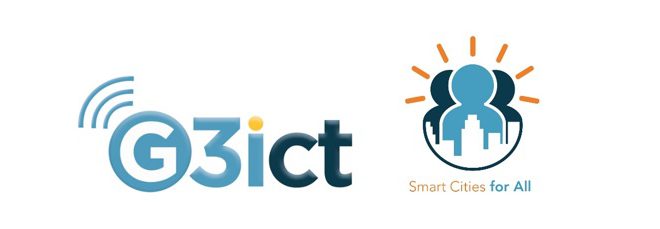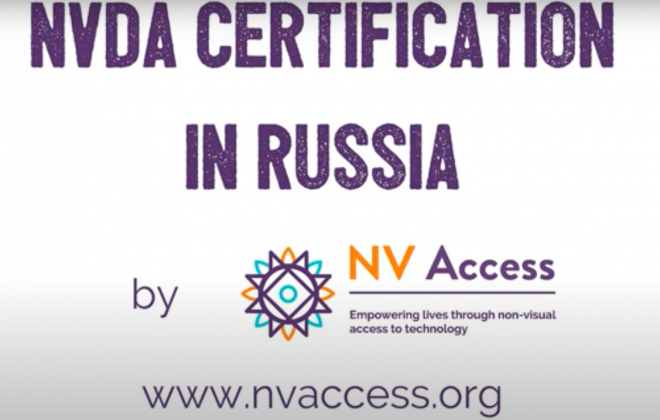Smart Cities for All Toolkit is now Available in Hebrew
PRESS RELEASE
FOR RELEASE: April 29, 2018
Contact: Yulia Sarviro at info@smartcities4all.org,
Michal Rimon at michal@aisrael.org
Smart Cities for All Toolkit is now Available in Hebrew
G3ict and World Enabled in partnership with Access Israel make their Smart Cities for All Digital Inclusion Toolkit available in Hebrew
Tel Aviv (Israel), April 29, 2018 – International nonprofits, G3ict and World Enabled, in partnership with Access Israel announced today that they will make the Smart Cities for All Digital Inclusion Toolkit available in Hebrew in addition to Arabic, English, French, Hindi, Japanese, Korean, Marathi, Portuguese, and Spanish languages versions.
“Access Israel is proud to be one of the leading organizations in the world promoting ICT accessibility,” states Yuval Wagner, President and Founder of Access Israel. “We believe the translated toolkit will help a lot for the implementation of accessible ICT technologies making sure digital smart cities will be accessible for people with disabilities.”
World Bank data shows that urbanization has been growing steadily over the last 50 years in almost all countries of the world. During this period the world’s urban population increased from 1 to 4 billion people. Almost 25% of the world population lives in cities with more than 1 million inhabitants. According to United Nations projections, by 2030 urban areas will house 60% of people globally and one in every three people will live in cities with at least half a million inhabitants.
The World Health Organization analysis shows that today one in seven people has some form of disability. At the same time, due to the ongoing urbanization, persons with disabilities increasingly live in cities. Despite the broader opportunities that usually bring people from rural areas to cities, persons with disabilities and older persons’ access to public spaces is more problematic, they have reduced number of options for quality healthcare, education, housing and jobs, and are more vulnerable and exposed to poverty and violence.
These demographic trends make urban development and inclusion policy a priority. Smart Cities can define a more inclusive urban future by using information and communications technology (ICT) to enhance livability, workability, and sustainability, connecting governments with citizens, improving information flow, and enhancing services. Smart Cities have the potential to provide all their citizens with a more equitable, comfortable, and secure environment. ICTs and emerging technologies, like artificial intelligence (AI), machine learning, and cloud computing, can help to make cities both smarter and more inclusive.
“We are excited that our longstanding and impactful partnership with Access Israel has enabled us to make available to cities across Israel a Hebrew version of our tools for digital inclusion in urban environments,” says James Thurston, G3ict Vice President for Global Strategy and Development. “This country’s commitment to persons with disabilities and its global leadership in technology innovation make it the perfect environment for success in applying the Smart Cities for All Digital Inclusion Toolkit.”
In 2016, G3ict and World Enabled launched the Smart Cities for All (SC4A) global initiative to narrow the digital divide for persons with disabilities and older persons. In May 2017, the SC4A global initiative launched its Digital Inclusion Toolkit, providing cities with a model policy for procuring technology, an inventory of three key standards that define ICT accessibility criteria, strategies for communicating the importance of digital inclusion in cities, and an alpha version of the database of Smart City solutions that could benefit persons with disabilities in cities. Today, each of these tools becomes available in Hebrew, bringing the total to ten.
Israel has the highest per-capita concentration of high-tech startups in the world, and technology goods and services account for more than 12% of the country’s gross domestic product (GDP). Dr. Victor Pineda, President of World Enabled, points out that “Cities around the world must innovate while leaving no one behind. This toolkit will now help cities in Israel ensure that digital services respond to the needs of all users, including persons with disabilities and older persons.”
About G3ict
The Global Initiative for Inclusive Information and Communication Technologies is an advocacy initiative launched in December 2006 by the United Nations Global Alliance for ICT and Development, in cooperation with the Secretariat for the Convention on the Rights of Persons with Disabilities at UN DESA. Its mission is to support and help implement the goals of the Convention on the Rights of Persons with Disabilities (CRPD), promoting digital accessibility and Assistive Technologies. More information can be found at http://g3ict.org.
About World Enabled
World Enabled is a global education, communications, and strategic consulting group. It supports companies and governments with the full implementation of legal mandates that promote the rights of persons with disabilities. Its work and research initiatives focus on urban planning and inclusive urban development. With its international partners, it helps build inclusive societies where people with disabilities can fully develop their talents and reach their full potential. More information can be found at http://worldenabled.org/.
About Access Israel
Access Israel, established in 1999, is the first non-profit organization in Israel whose main mission is to promote accessibility and inclusion to improve the quality of life of people with disabilities and the elderly. Access Israel strives to make Israel a place where people with various disabilities are integrated into society with dignity, respect, equal rights and maximum independence. More information at www.aisrael.org.
About Smart Cities for All
In 2016, G3ict and World Enabled launched a research project to assess information and communication technology (ICT) accessibility in smart cities around the world. They surveyed more than 250 experts and smart city program managers, 60% of whom responded that smart cities were failing people with disabilities. Only 18% of respondents knew of a smart city that uses ICT accessibility standards. As a result of the findings, and with support from Microsoft, the two NGOs created the Smart Cities for All Toolkit, featuring four digital tools to help those involved in city planning to make future technology projects more inclusive. James Thurston, Vice President at G3ict, and Dr. Victor Pineda, President at World Enabled, lead the Smart Cities for All initiative launched in 2016. Both James and Victor are accessibility experts who are committed to building a broad global coalition to ensure that persons with disabilities and older persons enjoy the advances of smart cities on an equal basis with other citizens. Learn more about Smart Cities for All: http://www.smartcities4all.org/.
Content retrieved from: http://smartcities4all.org/20180426_Press_Release-10_languages_FINAL.php.
Upcoming Events
There are no upcoming events.





